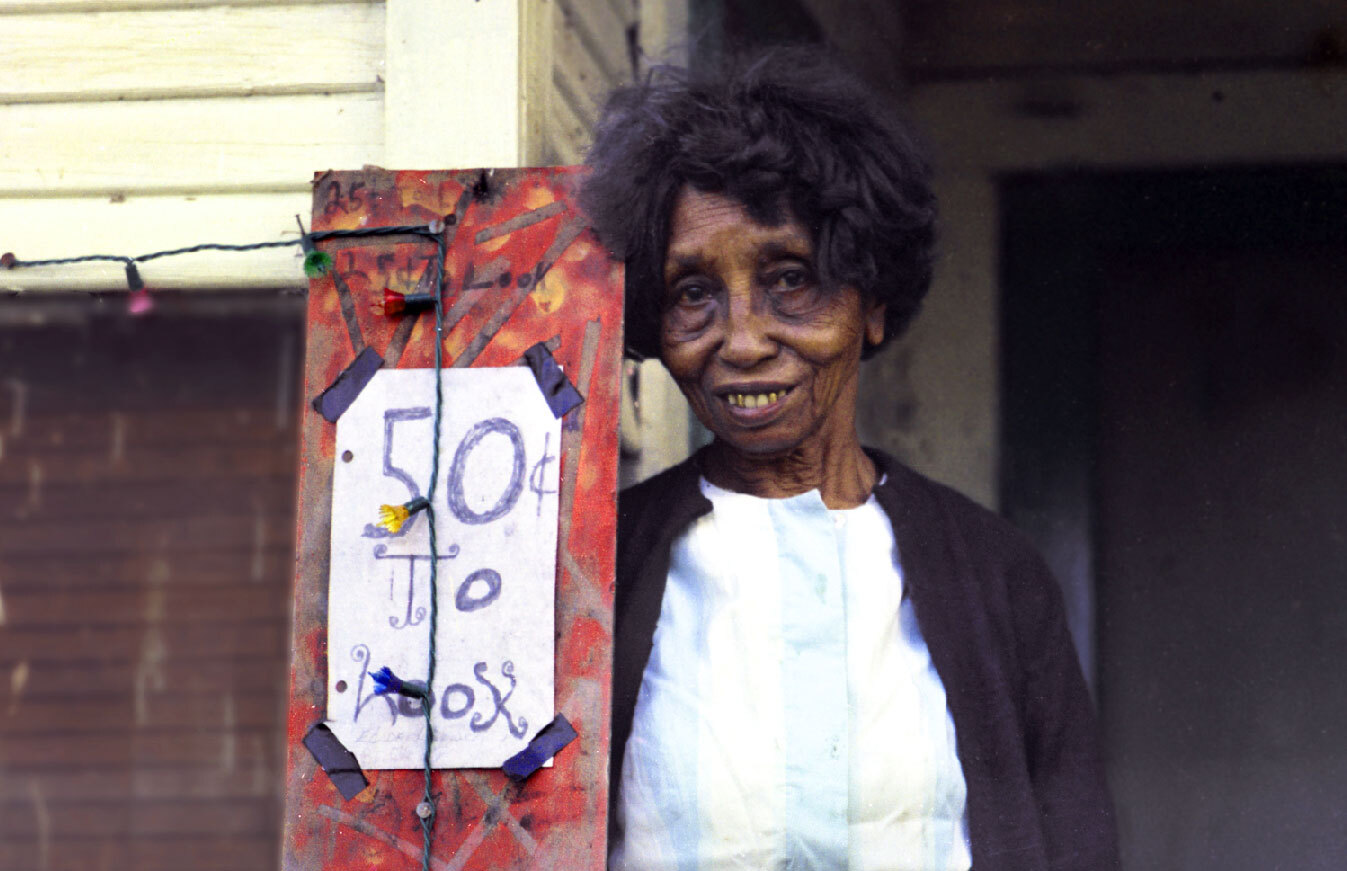Clementine Hunter was one of the most unique and inspirational folk artists of the 20th century. A self-taught artist and former plantation field hand, Hunter became a household name in her native Louisiana and was celebrated nationwide for her vividly colorful and charming depictions of plantation life. Sometimes referred to as “the black Grandma Moses” (another famous self-taught folk artist) she made a substantial impact on the art world.
Hunter was born in 1886 or 1887 (her exact birthdate is unknown) into a Louisiana Creole family living at Hidden Hill Plantation in Louisiana. She worked in the fields there along with her parents and six brothers and sisters before moving to the historic Melrose Plantation in Central Louisiana at the age of 15. There Hunter worked picking cotton for many years. She only went to school for 10 days before deciding she preferred working in the fields to school work – and as a result Hunter never learned to read or write.
In 1924, she married local woodchopper Emmanuel Hunter, who would eventually teach Clementine how to speak English (she could only speak Creole French before). Over the years, Hunter bore seven children, and was said to have picked nearly 80 pounds of cotton on the day she gave birth to one of them (she finally stopped working, went home and called for the midwife). A few days later she was back in the fields picking cotton.
By the late 1920s, Hunter had left the fields and began working as a cook and housekeeper at Melrose Plantation. In those days, the owner of the plantation had created an artist’s colony on the grounds – and many famous painters and writers came there to live and work on their craft. As fate would have it, Hunter found some brushes and paint that New Orleans artist Alberta Kinsey had left behind. Shortly thereafter, Hunter – who was now in her 50s – used them to create a depiction of a river baptism on a window shade. This was the unlikely yet amazing beginning of Hunter’s career as an artist in 1939.
Painting from memory, Hunter recreated scenes from her life as a plantation worker – picking cotton, harvesting pecans, washing clothes, river baptisms, weddings, funerals and more. Her style was bold, forceful and used vibrant colors – and she ignored the rules of perspective and scale followed by many other artists. Hunter was also unique in using many different materials as canvases – from discarded cardboard boxes to window shades, gourds, bottles and jugs, just to name a few.
While Hunter would eventually earn a reputation as a legendary folk artist, most of her life was lived in near poverty. She made small amounts of money by giving people tours of her home and the paintings there for 25 cents – and would also charge one dollar for taking a photo with her. She was selling her paintings for as little as 25 cents each by the 1940s, but by the time of her death in 1988 art dealers were selling her work for thousands of dollars. This never seemed to phase Hunter, as she always said she loved painting and didn’t do it for the money – and she often gave her paintings away for free.
While Hunter’s work serves as a record of her life and experiences, it’s important to note that her paintings are also a representation of the African American culture and everyday life in Central Louisiana during the early to mid-1900s. Today, her work is highly acclaimed and has been displayed in venerated museums including the Smithsonian Institute, New York Museum of Folk Art, Dallas Museum of Fine Art, Minneapolis Institute of Art, and New Orleans Museum of Art, among others.
Cane River Pecan Company is proud to offer a wide selection of products featuring the wonderful art of Clementine Hunter. This includes tins filled with our gourmet pecan treats, as well as plates, trays, platters and books featuring her work. We invite you to view our full array of items featuring the work of this Louisiana legend either in our corporate store in New Iberia, or on our Clementine Hunter features products page online.
Keeping your business ahead of the curve means developing strong relationships — and lots of them. From clients and customers to business partners, vendors, employees and more, your list of vital players is ever growing and increasingly harder to handle. With professional gifting tips and industry insights, Cane River Pecan Company is here to help.




